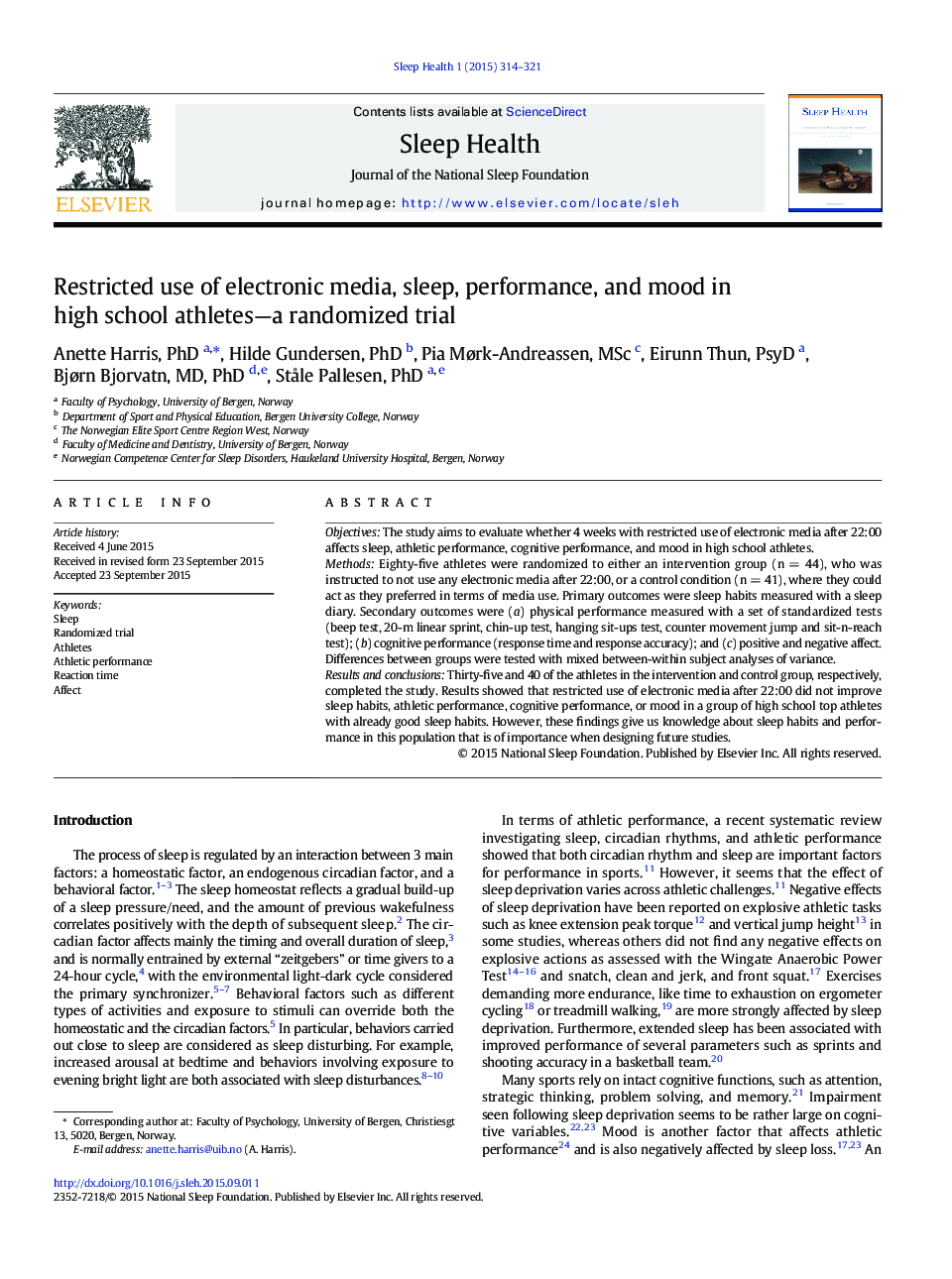| Article ID | Journal | Published Year | Pages | File Type |
|---|---|---|---|---|
| 916293 | Sleep Health | 2015 | 8 Pages |
ObjectivesThe study aims to evaluate whether 4 weeks with restricted use of electronic media after 22:00 affects sleep, athletic performance, cognitive performance, and mood in high school athletes.MethodsEighty-five athletes were randomized to either an intervention group (n = 44), who was instructed to not use any electronic media after 22:00, or a control condition (n = 41), where they could act as they preferred in terms of media use. Primary outcomes were sleep habits measured with a sleep diary. Secondary outcomes were (a) physical performance measured with a set of standardized tests (beep test, 20-m linear sprint, chin-up test, hanging sit-ups test, counter movement jump and sit-n-reach test); (b) cognitive performance (response time and response accuracy); and (c) positive and negative affect. Differences between groups were tested with mixed between-within subject analyses of variance.Results and conclusionsThirty-five and 40 of the athletes in the intervention and control group, respectively, completed the study. Results showed that restricted use of electronic media after 22:00 did not improve sleep habits, athletic performance, cognitive performance, or mood in a group of high school top athletes with already good sleep habits. However, these findings give us knowledge about sleep habits and performance in this population that is of importance when designing future studies.
